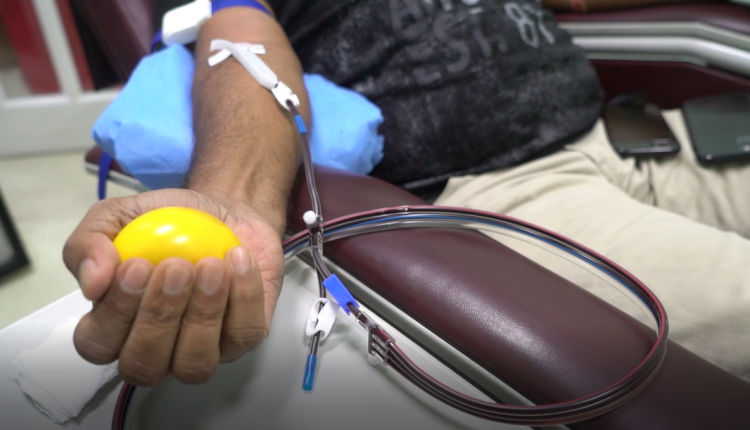Three COVID-19 patients recover after treated with antibodies from survivors
Three COVID-19 patients who were in critical condition in the Intensive Care Unit (ICU) at the Georgetown Public Hospital (GPHC) have now fully recovered after being treated with convalescent plasma collected from recovered patients.
Cardiologist Dr Mahendra Carpen, during an interview with the News Room, explained that four patients were initially administered the treatment, but the first patient died.
The treatment started as a clinical trial but has since been approved by the Pan American Health Organisation/World Health Organisation (PAHO/WHO) and the Ministry of Public Health as a viable treatment for COVID-19.

The treatment is not brand new; doctors have been using convalescent plasma transfusions to help patients fight diseases as far back as the Spanish Flu of 1918. More recently, the procedure has been used in patients with SARS, Ebola, H1N1 and others.
However, Guyana is among the first countries in the Caribbean to use this treatment for COVID-19.
Dr Carpen explained that when someone gets an infection the body initiates a response to fight the infection and it does so by creating antibodies.
“Knowing what we know about patients’ immune reaction we assume that these patients who are recovered have enough of these antibodies in their blood.
“So we then take that, process it and it give it other patients who have COVID-19 but are not doing so well,” Dr Carpen said.
A specific criterion is used in selecting donors and recipients. The patient donating the plasma must be fully recovered from COVID-19 within a specified time and is also tested for any other infectious diseases that can be transmitted.
The blood itself also goes through a rigorous screening process through the National Blood Transfusion Service for any kind of adverse particulars or infection.
“This is all an informed consent process where patients are counseled before they actually donate or before they receive the convalescent plasma,” Dr Carpen said.
The treatment started about two months at the Georgetown Public Hospital Corporation (GPHC). Along with the convalescent plasma, the patients also received malaria drugs Hydroxychloroquine, Chloroquine and Azithromycin.
Dr Carpen said there has been an encouraging response in the call for donation from recovered COVID-19 patients.
“We are blessed with a generous population of patients who are willing to help each other. So we have a very good response from patients when we ask them to donate their blood plasma when they recover from this condition,” Dr Carpen said.
The protocol being used to administer the treatment is two units of convalescent plasma. Dr Carpen said the two units should have enough antibodies to fight of the infection from COVID-19. But before receiving the treatment, consent is obtained from the patient or if the patient is not able to give consent, then a relative is sought.
The treatment is only administered when there is nothing else to be done to save the patient. Dr Carpen further stated that convalescent plasma is not a complete answer for COVID-19, but it is a useful treatment.
“What we know about convalescent plasma is that in the right patient and the right setting it is helpful; not everyone and not universally so.
“But the more patients you have who are recovered the more available your bank of convalescent plasma is.
“So you have stronger concentration of antibodies being delivered from one patient to the next,” Dr Carpen said.
The US and UK are also using convalescent plasma to treat COVID-19 patients.








